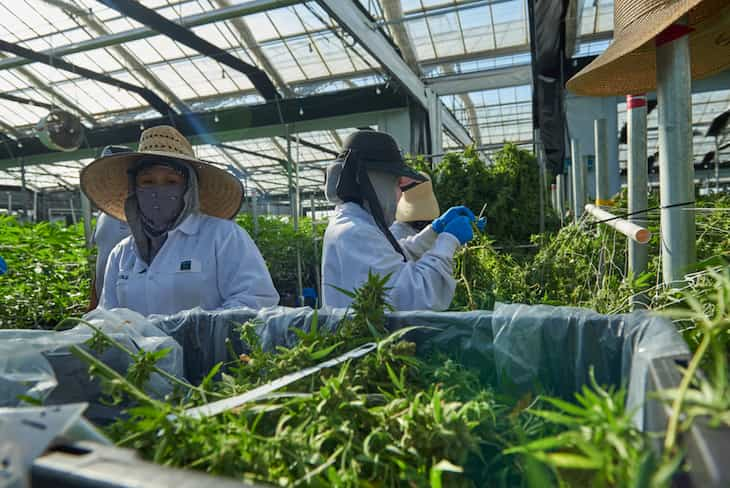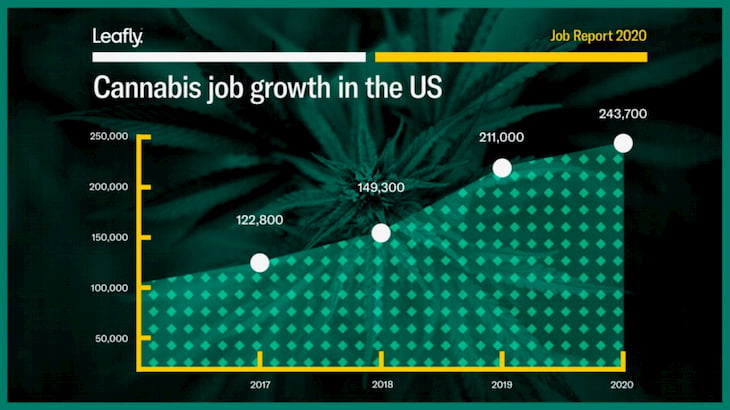
Nearly 250,000 Americans are currently working part-time or full-time in the legal cannabis industry. According to Job Report 2020, these numbers are expected to grow significantly as new states warm up to cannabis legalization and more markets established.
A quarter of a million cannabis jobs
California leads with the most cannabis jobs, owing to its size and long history of legal medical marijuana. Colorado and Washington, the first two states to legalize adult-use cannabis, are next on the line. As budding markets become more established, even states considered more conservative like Oklahoma are likely to add thousands of marijuana jobs.

The legal cannabis industry is a unique sector that requires a wide range of expertise to run. From agriculture and new product development to chemical testing and retail, the sector absorbs all sorts of human resources. As David Belsky points out, all these take place within an added layer of rules and regulations.
Belsky is the CEO of FlowerHire, a staffing and talent strategy firm that focuses on the regulated cannabis industry. He says salary can vary widely from one state to another but jobs are available for people at all education levels. From delivery drivers and bud trimmers to retail salespeople, manufacturing and finance experts, the industry has a spot for everyone.
A wide range of professionals
Even Ph.D. chemists, horticulturalists, and many other professionals work in the cannabis sector. Belsky says the primary benefit of cannabis jobs to the U.S. states is “they can’t be moved out of state.” The federal regulations prohibit cannabis from crossing state boundaries. According to the current federal laws, cannabis has to be grown, processed, and sold in the state in which it’s consumed.
Recent top open cannabis jobs, according to Glass Door included brand ambassador, retail associate, sales manager, delivery driver, and security positions. As each state embraces the cannabis market in its own way, job types arise similarly. States that allow delivery require more delivery drivers, security people, and vehicle maintenance.
On the other hand, states where retail shops are springing up require savvy marketers to match the competition. Settings considering cannabis consumption clubs are likely to draw from the dining and entertainment industries. Similarly, when legalization issues arise, tech entrepreneurs are required to develop seed-to-scale tracking software and ensure that it remains in sync with the changing rules.
Currently, cannabis sales are growing in each state where medical or recreational use is allowed. According to Belsky, that means jobs are growing. He said, “Many other industries are faltering right now, but not cannabis.”


